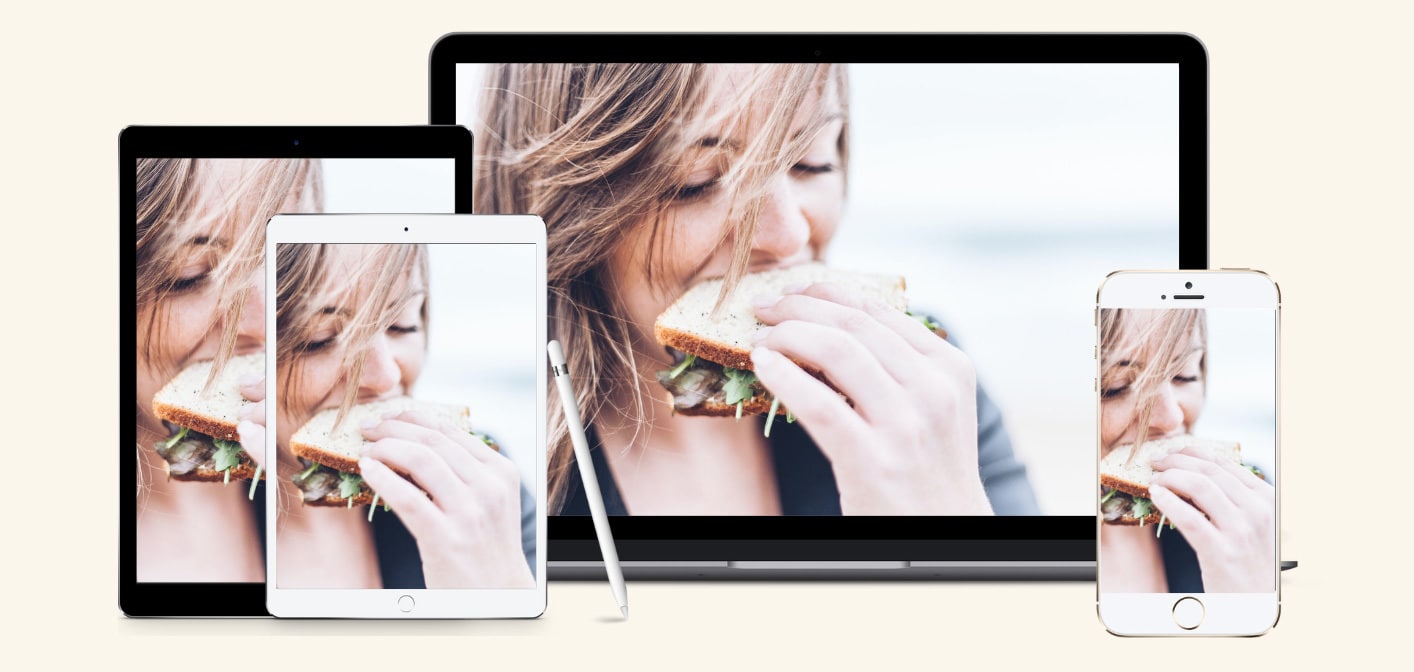What To Look For In An Online Dietitian Or Nutritionist (UK Edition)
Choosing the right online dietitian or nutritionist can feel overwhelming. You want someone qualified, kind, and practical who will not judge your eating, your body, or your history with diets. You might be hoping to stop food guilt, reduce constant thoughts about eating, or get support for specific health needs.
This guide walks you through what to look for in the UK, what to avoid, typical costs, and how to feel confident in your choice.
Dietitian or nutritionist, what is the difference in the UK?
In the UK, titles matter. Dietitian is a protected title. Dietitians are regulated by the Health and Care Professions Council (HCPC) and usually members of the British Dietetic Association (BDA). They are trained to work in clinical settings as well as private practice and can work with medical conditions, disordered eating, and complex needs.
Nutritionist is not a protected title. Anyone can call themselves a nutritionist, which is confusing. To find credible practitioners, look for Registered Nutritionists who are on the UK Voluntary Register of Nutritionists (UKVRN) with the Association for Nutrition, often written as Registered Nutritionist, RNutr or ANutr.
If you are dealing with binge eating, emotional eating, restrictive dieting, Irritable Bowel Syndrome (IBS), Polycystic Ovary Syndrome (PCOS), diabetes, or recovery from disordered eating, a Registered Dietitian or a well qualified Registered Nutritionist with relevant specialist training is recommended.
How to choose the right online professional for you
Start with qualifications, then consider approach, communication style, and practicalities. Ask yourself:
- Are they a Registered Dietitian with HCPC registration or a Registered Nutritionist with AfN registration?
- Do they have experience with your needs or condition, such as intuitive eating, emotional eating, or GI conditions?
- Do they use an evidence based, compassionate approach that avoids rigid food rules and calorie policing?
- Do you feel safe and heard when you read their materials or speak to them?
A short discovery call can reveal a lot. Notice if they ask curious, open questions rather than launching into a meal plan or a blanket approach. You want someone who collaborates with you, not someone who dictates.
Qualifications and registrations to look for
- HCPC registration for Dietitians, often written as RD or Dietitian, plus optional BDA membership.
- AfN registration for Nutritionists, shown as RNutr or ANutr.
- Additional specialist training in areas like Intuitive Eating, Motivational Interviewing, Acceptance and Commitment Therapy, eating disorder support, or gastrointestinal nutrition. Clear safeguarding and ethical policies, including scope of practice and when they refer on.
You can check HCPC and AfN registers online. Do not be afraid to ask for a registration number. A reputable professional will welcome it.
Red flags and common pitfalls to avoid
- Promises of rapid weight loss, detoxes, or one size fits all plans.
- Moral language about food, for example good and bad foods, cheat meals, or earning food with exercise.
- Heavy focus on calorie counting when your goal is to improve your relationship with food or manage emotional eating.
- No clear privacy policy, unclear pricing, or pressure to sign up on the spot.
- Lack of collaboration with other healthcare providers when you have complex medical needs.
If you sense shame or fear based messaging, trust your instincts. You deserve care that builds trust in your body and supports long term change. If you’re not sure about seeing a professional yet, but you’re looking for who to follow online that is credible, we outline more about that in our article here.
What does online support actually look like?
Online sessions are usually video calls of 45 to 60 minutes. You will discuss your challenges, daily routines, medical history, eating patterns, and emotions around food. Good practitioners can offer strategies between sessions, gentle experiments, and tools to help you notice hunger and fullness, challenge food rules, and respond to emotional triggers with compassion.
Many clients find online care more accessible and consistent. No need to travel, flexible times, and the comfort of your own space can make it easier to be honest and to practise new skills. If your aim is to stop feeling out of control at night, or to stop constant calorie counting, a supportive, non diet approach can help you rebuild trust in your body without restriction.
How much does it cost to see a dietitian or nutritionist online in the UK?
Prices vary by experience, location, and service length. As a general guide in private practice:
- Initial consultations often range from £80 to £200 for 50 to 60 minutes.
- Follow up sessions typically range from £70 to £160.
- Coaching programmes that include regular sessions, resources, and between session support are usually packaged monthly or over set periods. Per session cost often becomes more economical within a package.
Some providers offer payment plans, occasional scholarships, or one off focused sessions if you need immediate support without a long commitment. Always check cancellation and refund policies so you feel clear and in control.
Are online dietitians worth it?
If you want lasting change, compassionate accountability, and tailored support, yes. Working with a qualified professional can shorten the trial and error phase that keeps you stuck. Research based guidance helps you move away from rigid rules and towards practical habits that fit your life. Many clients report less anxiety about food, fewer binges, more satisfaction from meals, reduced gut symptoms, and more energy for life. The real value sits in the peace and confidence you gain, not a temporary plan you abandon in a few weeks.
Practical steps to get started
- Clarify your needs. For example, you might want to feel more in control around food, understand and reduce late night overeating, ease guilt, or return to exercise without compensating for food.
- Check registrations. Look up HCPC or AfN details before you book.
- Ask about approach. If you value non diet care, ask how they support intuitive eating and emotional eating triggers.
- Request a discovery call. Notice how you feel in the conversation, not just what they say.
- Start small. Agree one or two experiments between sessions, such as eating enough during the day to reduce evening cravings, or pausing to check in with hunger and emotions before a meal.
If you are curious to begin with a gentle, evidence based approach, our team offers online nutrition coaching built around intuitive eating, body respect, and self compassion. You can explore options for nutrition counselling and book a time that works for you.
How Nude Nutrition can help
At Nude Nutrition, we specialise in helping you let go of restrictive dieting and rebuild trust with food. Our clinicians are Registered Dietitians and Certified Intuitive Eating Counsellors who support people through emotional eating, binge eating, GI issues, PCOS, diabetes, and recovery from disordered eating. Sessions are online, flexible, and tailored to your life. We focus on practical steps, like ensuring you eat enough and often during the day, matching meals to satisfaction and nourishment, and building coping tools for stress that do not rely only on food.
If you are ready to explore care that heals your relationship with food, you can learn about virtual nutrition coaching and book your first conversation. Many clients tell us they feel lighter and more hopeful after just one session.
Final thoughts
Choosing an online dietitian or nutritionist in the UK does not have to be complicated. Look for protected titles and recognised registrations, ask about approach, and trust how you feel in the conversation. Avoid anyone promising quick fixes. Prioritise compassionate, evidence-based care that supports long term wellbeing.
If you want guidance that helps you stop chasing rules and start trusting your body, we are here to help you find food peace at your pace.





